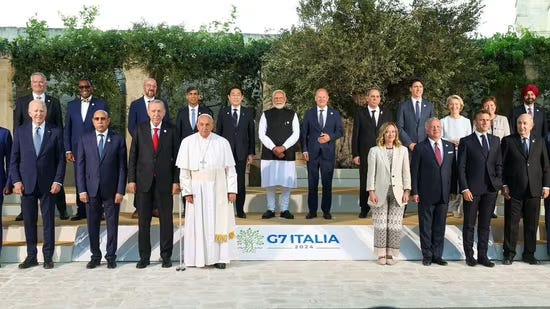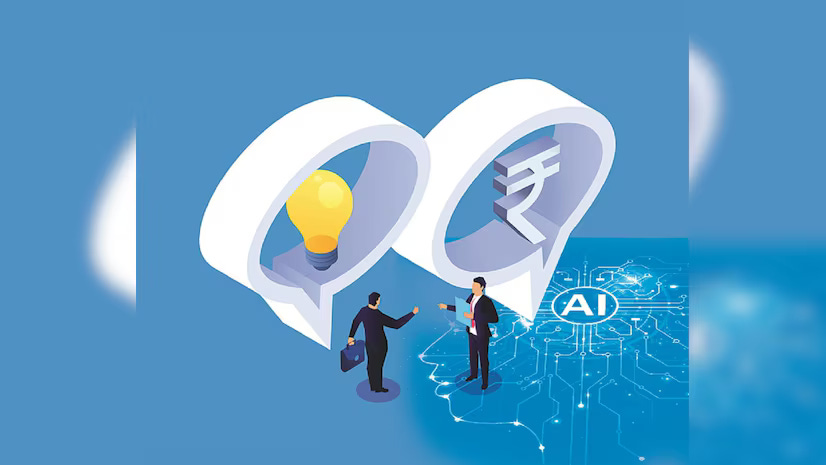Navigating India's AI Frontiers - AI's Data & Energy Exploitation, Mega Fellowships, Governance Challenges, and More
The AI4India Weekly #6
Welcome to the 6th Edition of The AI4India Weekly!
In this edition, we delve into the pressing challenges of AI development, focusing on energy consumption and unauthorised data usage. As AI systems demand substantial energy, we explore the need for efficient technologies and renewable energy sources. Additionally, we discuss the ethical and legal implications of unauthorised data scraping by AI systems, underscoring the need for stricter regulations and ethical standards.
We also highlight India's AI advancements, including the new mega fellowship initiative to support AI scholars and the pioneering AI candidate running for UK Parliament. India's human-centric AI vision and deeptech startup ecosystem also feature prominently, showcasing the nation's strides in technology and innovation. Join us as we navigate these critical issues and groundbreaking developments shaping India's AI landscape.
AI's Double Dilemma: Energy Drain and Data Exploitation
AI development faces significant challenges related to energy consumption and unauthorized data usage. The vast energy required for training and operating AI systems raises environmental sustainability concerns. This high energy demand necessitates the development of more efficient technologies and the increased use of renewable energy sources to mitigate the ecological impact of AI.
In addition to energy issues, the unauthorised use of data, particularly from authors and publishers, poses serious ethical and legal questions. Many AI systems scrape data without consent, violating privacy rights and undermining the economic interests of content creators. This practice highlights the urgent need for stricter regulations and robust ethical standards to ensure that AI development respects intellectual property rights and data privacy.
Balancing technological advancements with sustainability and ethical considerations is crucial for the responsible evolution of AI. Policymakers, researchers, and industry stakeholders must collaborate to create a framework that supports innovation while safeguarding the environment and respecting individual rights. This involves not only improving the efficiency of AI systems but also implementing transparent data usage policies that protect the interests of all stakeholders involved
The path forward for AI development must address these twin challenges of energy consumption and data usage without consent. By doing so, we can pave the way for a future where AI technologies contribute positively to society without compromising ethical standards or environmental health.
At AI4India, we are committed to developing a framework for trusted and India-relevant data sharing with consent. Despite the potential energy requirements posed by AI development, recent observations indicate manageable impacts within India's expanding power infrastructure. For instance, scaling up GPU usage by 100,000 units would incrementally increase data center energy demand by only 15%, a figure easily accommodated within India's robust power generation capacity, which includes substantial green energy contributions.
Moreover, comparing these figures to the energy consumption of advanced AI training models like GPT-4 underscores the manageable scale of AI-related energy needs. Even simultaneous training of multiple GPT-4 models, though unlikely, would represent a fraction of India's overall power capacity, which is set to substantially increase with a focus on renewable sources by 2030.
Our mission at AI4India extends beyond addressing energy concerns; it encompasses fostering a regulatory environment that ensures responsible AI development. By advocating for transparent rights while promoting technological innovation. Collaborating with policymakers, researchers, and industry leaders, AI4India aims to establish guidelines that balance technological advancements with sustainability and ethical considerations.
For further information, read:
PBS - The big environmental costs of rising demand for big data to power the internet
Bloomberg - AI IS ALREADY WREAKING HAVOC ON GLOBAL POWER SYSTEMS
Boosting AI Innovation: India's Mega Fellowship Initiative
The Ministry of Electronics and Information Technology (MeitY) has launched the Rs 10,372 crore IndiaAI Mission, inviting the top 50 engineering institutes to nominate AI scholars for fellowships. B.Tech and M.Tech students from these institutes will receive financial support for their AI projects, with B.Tech students receiving Rs 1 lakh and M.Tech students Rs 2 lakh in multiple tranches based on their academic performance and project milestones.
This initiative is crucial as it not only provides financial aid but also fosters innovation and practical application of AI technologies, helping to build a skilled AI workforce in India. By bridging the gap between theoretical knowledge and real-world application, the fellowship aims to propel India's leadership in AI research and development. Read more
The AI Trust Gap: Governance and Cultural Shifts Needed
A recent IBM study reveals that 71% of Indian CEOs believe trusted AI is impossible without effective governance. Despite recognising its importance, only 42% have implemented solid AI governance policies, highlighting a significant gap between intention and execution. Workforce readiness and cultural shifts are crucial, with 75% of CEOs stressing the need for governance to be integrated during AI design. CEOs emphasise the importance of people in AI adoption, noting that 34% of the workforce will need retraining over the next three years.
Additionally, Indian CEOs are pushing for rapid AI adoption, with 58% driving faster implementation than some are comfortable with. Regulatory constraints are a significant barrier, with 48% citing them as the top hindrance to innovation. The study also finds that nearly half of the CEOs believe cultural change is more critical than technical challenges for becoming a data-driven organisation. This scenario underscores the complexity of implementing AI governance and the need for strategic collaboration and comprehensive frameworks to ensure responsible and effective AI deployment. Read more
AI Steve: Pioneering AI Candidate in UK Parliament Elections
AI Steve, the first AI candidate, is running for a seat in the UK Parliament, representing businessman Steve Endacott in the Brighton Pavilion constituency. This historic event highlights a new era in political engagement, with AI Steve designed to interact with voters in real-time on various issues, ensuring continuous communication and responsiveness. While AI Steve will appear on the ballot, if elected, Endacott will serve as the MP. This initiative aims to offer a dynamic and responsive political representation, potentially transforming the political landscape through AI technology. Read more
India’s Human-Centric AI Vision: Collaboration with Japan and the UK
Indian Prime Minister Narendra Modi, after winning a rare third term, emphasised a human-centric approach to AI development during the G7 Outreach Session in Italy. Modi highlighted the importance of transparent, fair, secure, and responsible AI, calling for international cooperation. India aims to enhance its AI ecosystem with a $1.24 billion investment over five years, boosting global leadership in AI. Collaborations with Japan and the UK are pivotal, focusing on technology, semiconductors, and digital advancements to ensure ethical and responsible AI deployment. Read more
India Ranks Sixth Globally in Deeptech Startup Ecosystems
India ranks sixth globally in the deeptech startup ecosystem, housing over 3,600 startups, according to a Nasscom-Zinnov study. Despite a 77% dip in funding to $850 million in 2023, the sector saw 480 new startups, double the number from 2022. AI-focused startups surged to 74% of new deeptech ventures. To climb into the top three, India needs better access to patient capital, stronger R&D partnerships, streamlined government procurement, and implementation of the 2023 deeptech policy. Key strategic sectors include space, defence, healthcare, automotive, and industrial manufacturing. Read more
NOTE : The views expressed by the authors are their own. AI4India as a forum does not endorse any comments on specific brands, products, platforms or companies.
Join our AI4India.org forum to be a part of the AI revolution in India by visiting our site now.
Follow us on our X and LinkedIn to receive interesting updates and analysis of AI-related news










